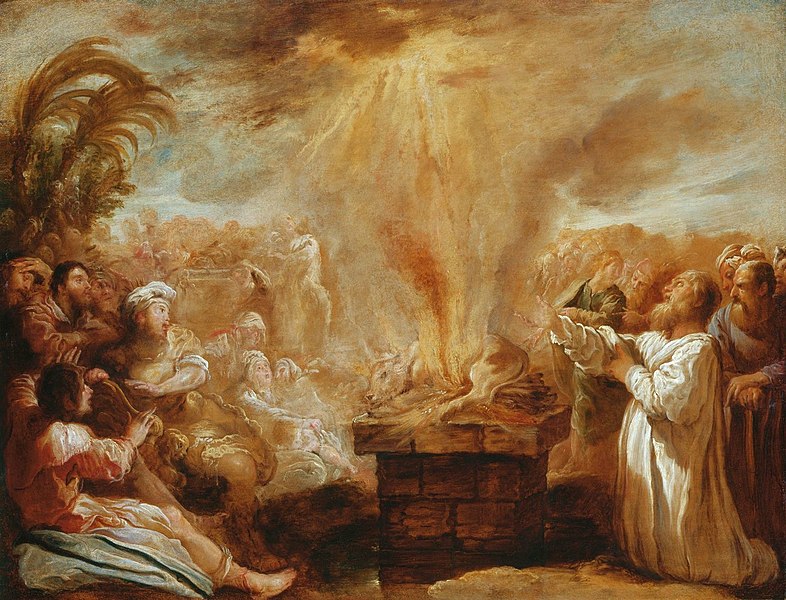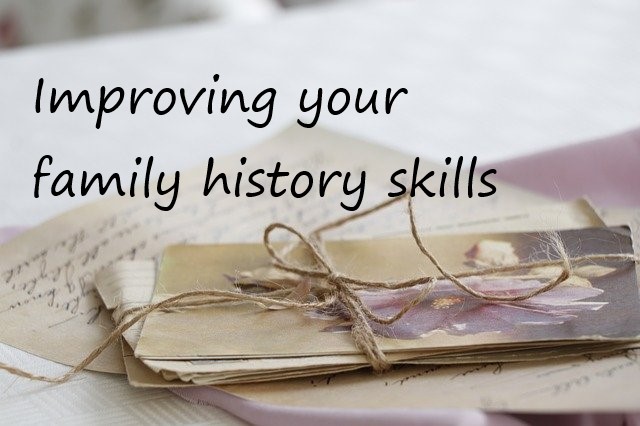

Come, Follow Me is a resource offered by The Church of Jesus Christ of Latter-day Saints. It is designed to be used in the home to support personal and family scripture study to build faith in Heavenly Father and His plan of salvation and in the Savior Jesus Christ and His Atonement. Come, Follow Me is self-contained and adequate, when used properly. Products and materials designed to supplement this resource, though they may be helpful in some instances, are not necessary for a successful home study program.

An invitation to sacrifice is an opportunity to exercise my faith.
From Come, Follow Me:
At first it might seem hard to understand why the prophet Elijah asked the widow in Zarephath to give him food and water before feeding herself and her starving son. But Elijah’s request could also be seen as a blessing for this small family. They needed the Lord’s blessings, and sacrifice often brings blessings—including the blessing of stronger faith.
As you read this story, put yourself in the place of this remarkable widow. What impresses you about her? Consider the opportunities you have to exercise your faith—including opportunities to sacrifice. How can you be more like this widow?
“Members of the Lord’s Church should be willing to sacrifice all things for the Lord. Joseph Smith taught that ‘a religion that does not require the sacrifice of all things never has the power sufficient to produce the faith necessary unto life and salvation.’ In the eternal perspective, the blessings obtained by sacrifice are greater than anything that is given up.” (Sacrifice)
At this same RootsTech 2017 presentation, President Russell M. Nelson challenged, "As Church members, our interest in family history work has been motivated by instruction from the Lord that our ancestors cannot be made perfect without us, and we cannot be made perfect without them….I would like to extend a challenge to each one of us. I invite you prayerfully to consider what kind of sacrifice, and preferably a sacrifice of time, you can make to do more family history and temple work this year." (Open the Heavens through Temple and Family History Work, Russell M. Nelson and Wendy W. Nelson, RootsTech 2017)

Do you struggle finding time to do your family history? By using small amounts of time consistently, you can accomplish much in your family history. Here are a few ways to help you get the most out of your family history experience in a limited amount of time:


Make a list, perhaps on your phone, to have handy for the odd moments when you could use a family history time filler! Some ideas are:


Make something new that documents, creates, or contributes to your family history and legacy. See makefamilyhistory.org for a myriad of fun and doable ideas. Here are just of few of the many suggestions:
The Lord often speaks in quiet, simple ways.
From Come, Follow Me:
When Queen Jezebel heard about what had happened to her priests on Mount Carmel, she wasn’t converted—she was enraged. Fearing for his life, Elijah fled to the wilderness and sought refuge in a cave. There, struggling with loneliness and discouragement, he had an experience with the Lord that was very different from what had happened on Mount Carmel. What does Elijah’s experience in 1 Kings 19:1–18 teach you about how the Lord communicates with you in your times of need? Ponder times in your life when you have experienced His voice. What do you need to do to receive His guidance more often?
“Seeking inspiration will increase your success in family history work. When you are striving to obey the commandments, you may ask the Lord for help in your family history efforts and trust that you may be aided by revelation through the power of the Holy Ghost. On occasion, the Holy Ghost may also help you sense the desires of your righteous ancestors in the spirit world to enter into gospel covenants.
“President James E. Faust (1920–2007) of the First Presidency explained: ‘The process of finding our ancestors one by one can be challenging but also exciting and rewarding. We often feel spiritual guidance as we go to the sources that identify them. Because this is a very spiritual work, we can expect help from the other side of the veil. We feel a pull from our relatives who are waiting for us to find them so their ordinance work can be done’ (in Conference Report, Oct. 2003, 59; or Ensign, Nov. 2003, 55).” (Chapter 5: Personal Revelation and Family History)


Discuss with your family how you can "Hear Him" by listening to the “still, small voice”. These articles may give you additional discussion ideas: Learning to Recognize the Spirit and How Do I Recognize and Understand the Spirit?
Share experiences together that you have had with the Holy Ghost. You may want to begin with a personal experience. (Remember, spiritual experiences are sacred and should not be talked about unless family members are comfortable sharing.)
Encourage family members to identify daily spiritual experiences and how the Lord has blessed them. Suggestions might include: How were your prayers answered? Did your scripture reading answer a question? Were you given the words to say at the exact time you needed them? Did an opportunity arise at the "right" time?
Extend a challenge to record these experiences. Recording events in a journal or other format can help you remember events of your own life as well as learning from your ancestors' lives and experiences. 5 Unique Ways to Record and Remember Revelation gives some ideas that might help you decide on a method that works best for you and your family.

Learn how to sign in and navigate FamilySearch here (FamilySearch Project 1, Goal 1 in The Family History Guide). Continue with FamilySearch Goals 2 - 14. Read how Projects, Goals and Choices enable your continued learning.
Use The Family History Guide Online Tracker to document your progress. The Online Tracker will enable you to study for as little or as long as time allows and then you mark where you left off so you know exactly where to begin the next time.

Ethnic Research - Do you have ethnic heritage that is African American, Asian, Basque, Hispanic, Jewish, or Native American? You can find helpful research resources at the bottom of the Countries menu, in the Ethnic section. You can also find similar resources in many of the individual country pages.